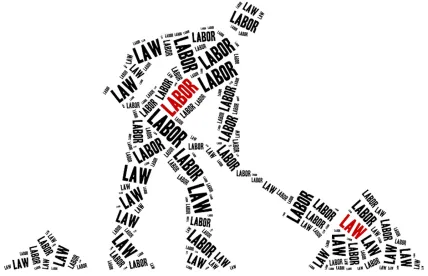-
Major League Baseball and the players’ union reached agreement on a collective bargaining agreement, ending the lockout. After a nearly 100-day lockout, MLB and the Major League Baseball Players Association reached a deal on a five-year collective bargaining agreement (CBA). The CBA deal came in time for the season to start just a week later than originally scheduled, with Opening Day set for April 7. Despite MLB Commissioner Rob Manfred previously announcing the cancellation of the first two weeks of games, the League will play a full 162-game schedule, with the cancelled games being made up with double headers. Highlights of the deal include raising the starting salary for players from $570,000 to $780,000 by 2026, expanding a bonus pool to reward top players not yet eligible for salary arbitration, holding a lottery for the top six picks in the amateur player draft, raising the thresholds for the competitive balance tax, and expanding the postseason playoffs to include 12 teams. Additionally, the long-awaited universal designated-hitter rule will become effective for the 2022 season, meaning National League pitchers will no longer be required to bat. Many are viewing the deal as a much-needed compromise to address the League’s financial woes as the sport’s popularity has waned in recent years. In 2019, ballpark attendance fell to 68.5 million, the lowest since at least 2006.
-
The National Labor Relations Board (NLRB) General Counsel (GC) issued a complaint seeking to overturn a Trump-era decision holding that misclassifying employees as independent contractors is not a stand-alone unfair labor practice. The NLRB GC has issued a complaint against five trucking, warehouse, and logistic companies in Southern California, alleging their misclassification of drivers as independent contractors rather than employees violated the National Labor Relations Act (NLRA). Deco Logistics d/b/a Container Connection, 21-CA-272323 (complaint issued March 17, 2022). The complaint alleges that the misclassification of the drivers prevented them from engaging in concerted activity protected under the NLRA. Independent contractors are not “employees” under the NLRA and, thus, not afforded the protections of the law, including the right to form a union. Moreover, independent contractors generally do not have other, non-NLRA legal protections, such as workers’ compensation or unemployment insurance. In Velox Express Inc., 368 NLRB No. 61 (2019), the Trump-era NLRB found that misclassifying employees, in and of itself, does not constitute a violation of the NLRA. The GC is seeking an order forcing the companies to reclassify drivers as employees and to pay them consequential damages suffered because of their misclassification, among other remedies.
-
The NLRB granted withdrawal of a Trump-era complaint related to revocation of union dues authorization. A divided NLRB panel permitted a charging party to withdraw charges filed against her employer after it rejected her request to revoke her dues deduction authorization. AT&T Services, 371 NLRB No. 82 (Mar. 18, 2022). The charges were filed during the administration of former NLRB GC Peter Robb, a Trump appointee, while the Board was comprised of a Republican majority. Robb’s office sought to expand the time periods when union members can revoke their dues deduction authorizations. Established Board law at the time permitted limiting revocation of dues deduction authorizations to once a year. Frito Lay, 243 NLRB 137 (1979). Having received reimbursement for the disputed dues from the union and ending her employment with the company, the charging party requested to withdraw the charge in December 2021. The current Biden NLRB agreed, in a 2-1 decision, to permit withdrawal (thus avoiding a decision on the merits of the case), finding that further prosecution would be a waste of resources. The case is illustrative of the holdover cases from the Trump Administration that the NLRB is still processing.
-
The U.S. Department of Labor (DOL) proposed significant changes to the Davis-Bacon Act and related federal labor laws. The DOL has issued a Notice of Proposed Rulemaking (NPRM) seeking to revise Davis-Bacon Act (DBA) regulations. The DBA requires payment of local prevailing wages and benefits on contracts with federal agencies and the District of Columbia for constructing, altering, or repairing public buildings or works. Congress has also incorporated prevailing wage requirements into more than 70 statutes, including the new Infrastructure Investment and Jobs Act. Much of the NPRM focuses on revising the process by which prevailing wage and benefits are set by the DOL. The DOL proposed returning to the definition of prevailing wage used from 1935 to 1983, where, absent a wage rate paid to a majority of workers in a particular classification, a wage rate will be used as the prevailing wage if it is paid to at least 30 percent of those workers. Because unions are more likely to participate in the survey process for determining prevailing wage rate than are non-union contractors, the new rule should swing the prevailing wage toward the generally higher union rates. The DOL also proposed providing itself broader authority to adopt state or local wage determinations where certain criteria are met. While there are some changes that benefit contractors, the NPRM includes mostly changes that will be beneficial to unions and employees, in line with the Biden agenda to overhaul federal labor law in favor of workers.
-
Tech workers at the New York Times voted to unionize in a landslide election. A group of approximately 600 full-time and part-time engineers, analysts, designers, and project and product managers at the New York Times has voted to be represented by the Times Tech Guild, an affiliate of the NewsGuild of New York, itself affiliated with the Communications Workers of America. A preliminary tally of ballots by the NLRB had the union winning in a landslide, with 404 of 492 votes counted being cast for the union. The bargaining unit — believed to be the largest unit of tech workers in the country — is responsible for building and maintaining the Times’ website and online applications. The Times had previously denied the union’s request for voluntary recognition, and it unsuccessfully argued to the Board that the election should be for a smaller unit because the different classifications in the group sought by the union did not adequately share a community of workplace interests. The win for the union is indicative of fast-growing organizing activity for news organizations (more common among editorial employees), even though union membership is down nationwide.
Thomas V. Walsh, Megann K. McManus and Nicholas A. Scotto also contributed to this article.








 />i
/>i

